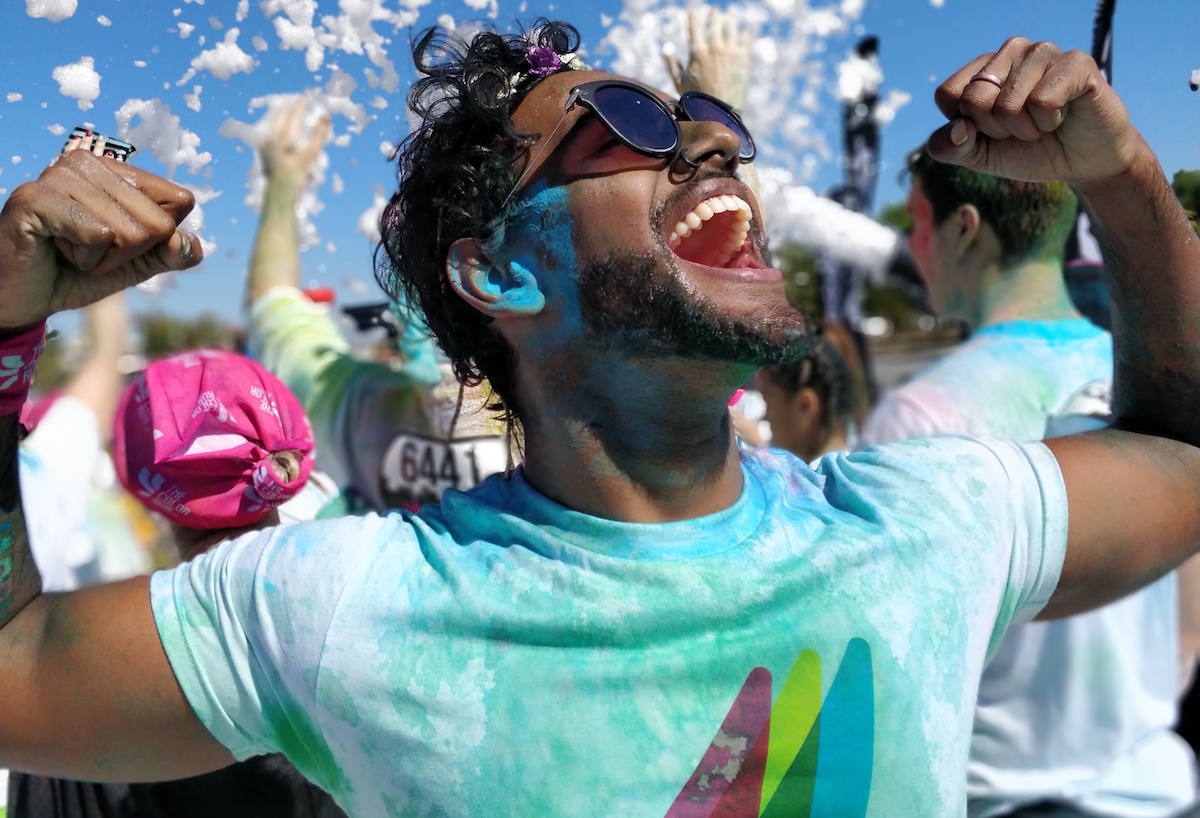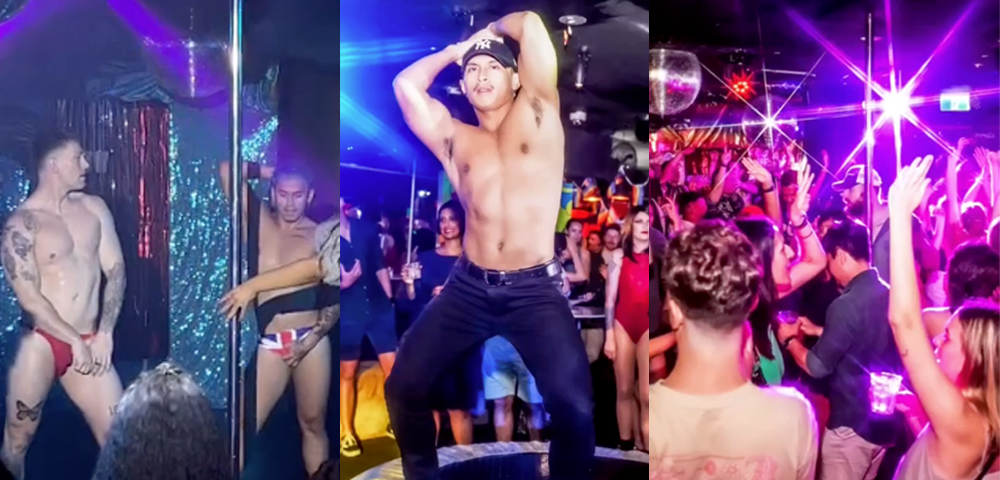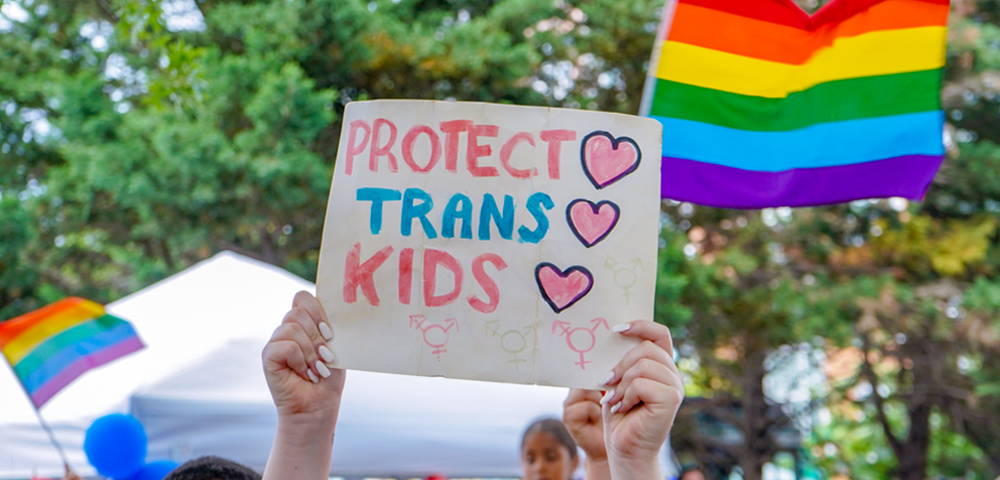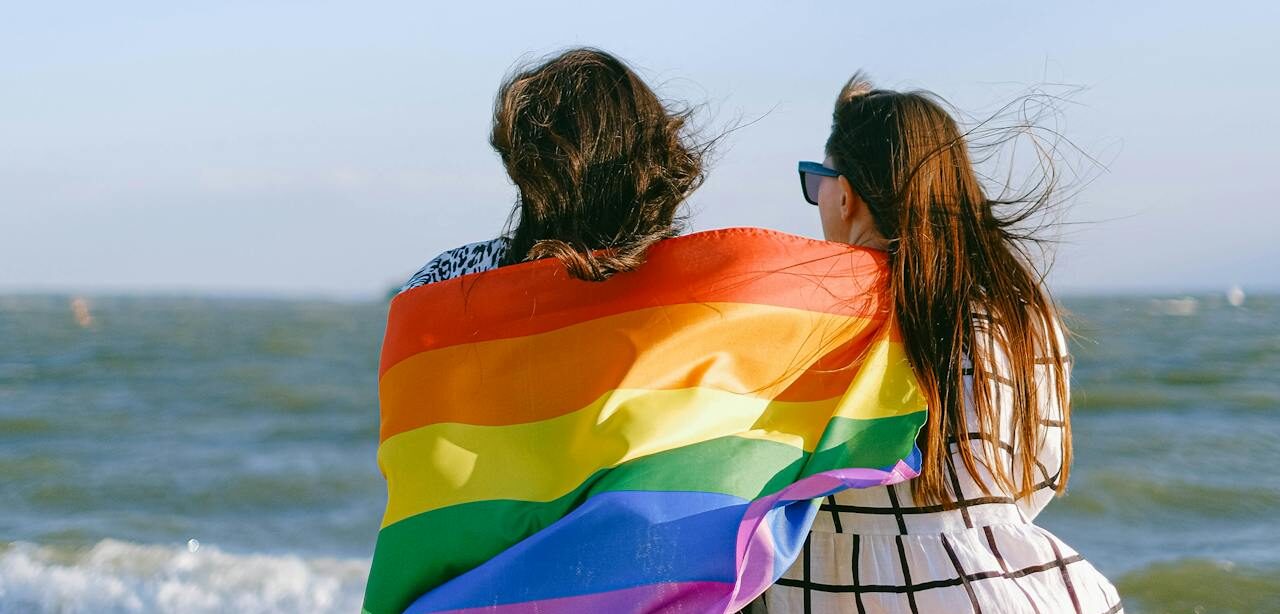
‘We want you to know this’: how to be a better ally to gender diverse people of colour

Living as a gender diverse person of colour in Australia can be a daily struggle. Queensland-based youth worker Shaun D’souza pens a helpful guide for allies wanting to do better.
* * *
As a trans non-binary, pansexual person of colour, I navigate and advocate against a debilitating and invalidating system that favours the heteronormative, cisgender, white community.
Every aspect of my life — relationships, employment, education, access to health care, social inclusion — is affected by this on a daily basis.
Living on the fringes and begging for validity involves being resiliently visible, educating people, and advocating for others who are far more disadvantaged than I am.
I do it half for those disadvantaged people and half for self-preservation, as a way to create a safe community around me. Daily. It is taxing and suffocating.
Being a person of colour, my experiences of institutional racism are different to that of black people. To add to that, being queer means I face a double whammy of oppression and deal with institutional roadblocks that are so rarely discussed or researched.
Here is an easy list of ways you can help people like me.
For the sake of this article, when I mention ‘trans’, it is inclusive of every gender diverse identity, and the word ‘queer’ is inclusive of diverse sexualities and gender identities.
LOOK IT UP.
Google the daylight out of ethnic, religious, cultural, sexual, and gender diversity.
Don’t expect anyone to educate you on facts, concepts, or research that is already out there.
Trans people of colour are more vulnerable to homelessness and drug use, and have a higher likelihood of attempting suicide than any other demographic on this planet.
Look up concepts around gender pronouns, and gender diverse identities.
Look up institutional racism and how it is at the core of every major institution in the country. Most importantly, understand the concept of intersectionality and how it provides an opportunity for people of various demographics – including myself – to be understood.
All of this can be a lot of information to digest. But every person of colour and trans person needs you to know this. Especially if you’re looking to support anyone within this community.
BE OFFENDED.
Get angry on behalf of anyone that faces discrimination.
During most of the days that involve my advocacy for other people, I return home each night so exhausted that I forget that I too require the same advocacy, care, and validity.
Not only do I get tired of educating others about issues but I also run out of energy to continuously speak up for myself.
Most people from disadvantaged backgrounds are too scared to do anything about their situation and continue to suffer.
A lack of privilege means demeaning and tiring realities for a lot of people. Bearing the injustice is often easier than confrontation.
People – especially those with poor mental health and inevitable trauma – would rather avoid the humiliation and invalidation. They need your support, emotion, voice and strength.
Read the news. Investigate. Be offended. Repeat.
LISTEN.
If you want to create a safe home, workplace, classroom, or institution for any individual who is diverse in any regard — hear them out.
Every queer experience is unique to the person and their intersections – don’t generalise. Know that one’s queer identity is not about you, but themselves and their journey. Coming out is not an attention seeking tactic. It is scary. Be humble. Listen.
Also, stop pretending to be colour blind. Feminism teaches equity and we need to acknowledge everyone’s individual experiences, especially by not pretending that we don’t see the difference. Respectfully see the difference and appropriately do something about the difference so that everyone can feel valid and comfortable within white-dominated spaces.
People who are culturally or linguistically diverse and queer sometimes hide their queer identities – but it is almost impossible for people to hide their race. It takes a lot of courage to live openly as a queer person of colour within a white, heteronormative community. The least you can do is be kind and hear us out. Please and thank you.
SPEAK UP.
Talk about these issues over dinner. Look for inclusivity in your workplace policies. If you own a fashion brand, throw out the “gendering of clothes” and invite anyone who needs your style in. Write stories, encourage research, and support queer artists of colour.
Be politically correct. What may seem like a “filter” to you is permission for marginalised people to merely exist. The pressure should not be on us to constantly be on the lookout and to create a better, safer space for ourselves.
If you enjoy even a little privilege that many people living in this country don’t, you can do something about it. Every person whose life you can influence positively can change a school, a workplace, or an institution.
I will not stop speaking up until I have the same privilege as a straight, white, cisgender Australian man. I won’t stop until I can walk into a room full of white people without feeling like I’m lesser than them.
You’re welcome to join me. It is messy. But I am a hopeful kind of a gay tornado. Bring it on – I would love your support.









